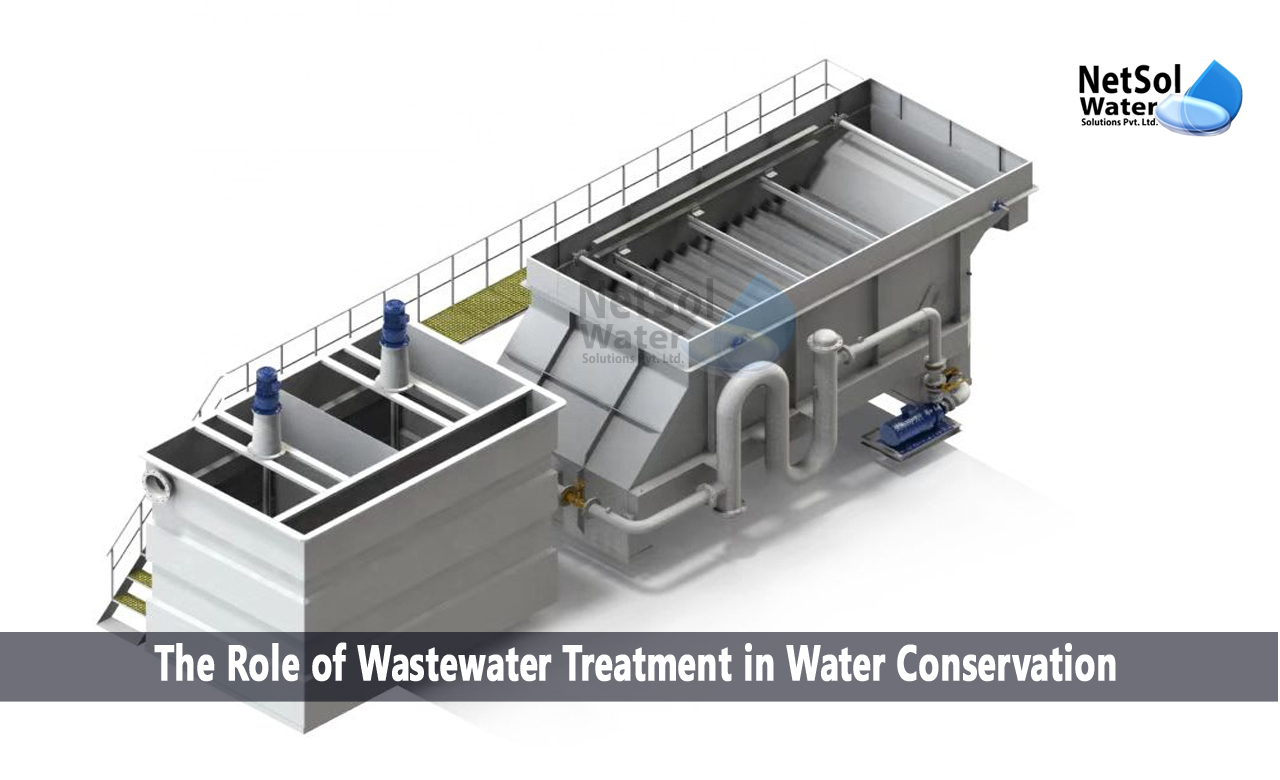What is the Role of Wastewater Treatment in Water Conservation?
Water scarcity is a global concern that calls for effective water conservation measures. Wastewater treatment plays a crucial role in water conservation by recycling and reusing water that would otherwise be lost. This blog explores in detail the significance of wastewater treatment in water conservation efforts. By highlighting the benefits of water reuse, the importance of efficient treatment processes, and the implementation of water conservation practices, we can better understand how wastewater treatment contributes to sustainable water management.
Water Reuse and Resource Recovery
Wastewater treatment enables water reuse, which is a key aspect of water conservation. Treated wastewater, also known as reclaimed water, can be utilizedfor various non-potable purposes such as irrigation, industrial processes, and groundwater recharge. Water reuse helps reduce the demand for freshwater resources, alleviates pressure on natural water sources, and ensures a sustainable water supply.
Reclaimed water has proven to be a valuable resource in agricultural irrigation. By using treated wastewater for irrigation, farmers can maintain crop productivity while reducing reliance on freshwater resources. Reclaimed water can provide a consistent and reliable water supply, particularly in regions prone to drought or facing water scarcity challenges.
Water reuse in industries can also optimize water consumption, reduce operational costs, and minimize environmental impact. Various industries, such as manufacturing, food processing, and power generation, require significant amounts of water for their processes. By incorporating treated wastewater into their operations, industries can reduce freshwater withdrawals, conserve resources, and contribute to sustainable production practices.
Moreover, wastewater treatment facilities facilitate resource recovery. Nutrients such as nitrogen and phosphorus, as well as organic matter, can be captured from wastewater and transformed into valuable fertilizers or biogas through processes like anaerobic digestion. This resource recovery not only reduces the need for synthetic fertilizers but also contributes to a circular economy and mitigates environmental impacts associated with nutrient pollution.
Efficient Treatment Processes
Efficiency in wastewater treatment processes is crucial for maximizing water conservation. Advanced treatment technologies and optimized operational practices can enhance water recovery and minimize water losses during the treatment process.
Membrane filtration, such as microfiltration, ultrafiltration, and reverse osmosis, effectively removes contaminants from wastewater, producing high-quality treated water for reuse. Membrane bioreactors (MBRs), which combine biological treatment with membrane filtration, offer compact and efficient systems for treating wastewater and achieving high water recovery rates. These technologies remove suspended solids, pathogens, and pollutants, ensuring the treated water meets stringent quality standards for various reuse applications.
Additionally, optimizing treatment processes to remove specific pollutants like nutrients and trace contaminants is essential. Biological nutrient removal (BNR) processes, including nitrification and denitrification, effectively reduce nitrogen levels in wastewater, preventing its release into receiving water bodies. Advanced oxidation processes (AOPs), such as ozonation or ultraviolet-based processes, can help in the removal of emerging contaminants, pharmaceutical residues, and persistent organic pollutants.
Water reclamation facilities can implement water-efficient practices, such as water auditing and leak detection, to minimize water losses within the treatment and distribution systems. Efficient water management strategies, including water metering, pressure management, and the use of smart technologies, contribute to overall water conservation efforts.
Water Conservation Practices
Beyond the treatment process, incorporating water conservation practices in our daily lives and in various sectors can significantly contribute to overall water conservation efforts.
Installing water-efficient fixtures and appliances, such as low-flow toilets, faucets, and showerheads, as well as using water-efficient washing machines and dishwashers, can reduce water consumption significantly. These measures ensure that less water is wasted during domestic activities and promote responsible water use.
Adopting water-wise landscaping practices can also contribute to water conservation. Designing landscapes that require minimal water, utilizing drought-tolerant plants, and implementing efficient irrigation systems such as drip irrigation can reduce outdoor water usage. These practices minimize water loss through evaporation and ensure that water is used efficiently for maintaining green spaces.
Rainwater harvesting is another effective approach to water conservation. Collecting and storing rainwater for non-potable uses, such as landscape irrigation or toilet flushing, can supplement water supply and reduce reliance on freshwater sources. This practice reduces pressure on municipal water systems and promotes self-sufficiency in water resources.
Industrial water management is critical for achieving water conservation goals. Industries can optimize water use by implementing water recycling and reuse systems, improving water treatment processes, and conducting regular water audits to identify and address inefficiencies. These measures help industries reduce their environmental footprint and contribute to sustainable water management.
Public education and awareness play a crucial role in promoting water conservation. Educational campaigns and community engagement initiatives can increase awareness about the importance of water conservation and the role of wastewater treatment in achieving it. By promoting responsible water use and providing information on water-saving practices, individuals and communities can actively contribute to water conservation efforts.
Conclusion:
Wastewater treatment plays a vital role in water conservation by enabling water reuse, facilitating resource recovery, and promoting efficient treatment processes. Through water reuse, treated wastewater can be utilizedfor various purposes, reducing the demand for freshwater resourcesand ensuring a sustainable water supply. Efficient treatment processes, supported by advanced technologies and optimized practices, maximize water recoveryand minimize water losses during the treatment process. Additionally, incorporating water conservation practices in our daily lives and across different sectors further contributes to sustainable water management. By embracing these strategies, we can conserve water resources, alleviate water scarcity, and create a more sustainable future. Continuous investment in wastewater treatment infrastructure, public education, and supportive policies is essential for promoting water conservation globally.
Netsol Water is Greater Noida-based leading water & wastewater treatment plant manufacturer. We are industry's most demanding company based on client review and work quality. We are known as best commercial RO plant manufacturers, industrial RO plant manufacturer, sewage treatment plant manufacturer, Water Softener Plant Manufacturers and effluent treatment plant manufacturers. Apart from this 24x7 customer support is our USP. Call on +91-9650608473, or write us at enquiry@netsolwater.com for any support, inquiry or product-purchase related query.



